Podcast: Download
Subscribe: Apple Podcasts | RSS
 Do you ever feel helpless? Like your brain is fuzzy and you just want to pull the covers over your head and leave life’s challenges for another day?
Do you ever feel helpless? Like your brain is fuzzy and you just want to pull the covers over your head and leave life’s challenges for another day?
Or maybe you just want someone else to come along and tell you what to do, say, think, and feel.
If so, you’re not alone.
In fact, my mind used to be pathetic and weak. I endured so much suffering, with a mind that had no power, no individualism, and no ability to rise up to life’s challenges.
I constantly sought others to pick me up and guide me along. During this time period, I was in deep and profoundly painful “learned helplessness.”
I had no mental strength — because I had no mental strength strategies.
But there’s a happy ending to this story.
With hard work and determination, I pulled myself out of this helpless state. I created strategies that worked for me. And today, I’m sharing everything I learned so you can do the same.
Want to see what’s ahead?
What Does Mental Strength Mean?
How to Test Your Mental Strength
How to Be Mentally Tough
1. Know and Evaluate Your Values
2. Seek Greatness
3. Water, Weed, Repeat
4. Track Your Progress
5. Accept Mistakes
6. Embrace Discomfort
7. Build Character
8. Craft Your Moral Compass
9. Practice Gratitude
10. Remind Yourself of Your Responsibility
11. Follow Through
12. Regulate Your Emotions
13. Take Care of Your Physical Health
14. Be Flexible
15. “Feel the Fear and Do it Anyway”
16. Practice, Practice, Practice
How to Be Mentally Tough: Book Recommendations
Mental Toughness Workouts
Become a Mental Strength Master
Ready to build your mental stamina and become strong and resilient?
What Does Mental Strength Mean?
Before you can build mental strength, you have to understand what it is.
Mental strength is a state of uninterrupted focus you can use to get the best quality from the effort that you put into a task.
Basically, knowing how to build mental toughness begins with having a strategy in place. It means having a plan for when things don’t go the way you expected — and the resilience to bounce back in the face of challenges.
Let’s look at a few other ways you might have heard the term.
Other Terms for Mental Strength
Resilience — if you look into psychology studies you’ll find the term “resilience” comes from engineering. It means the ability to spring back into shape.
If you have a baseline level of performance and your focus gets interrupted, how quickly can you spring back into focus?
These interruptions can be of several different types:
• Food interruption. You’re hungry and wander into the kitchen looking for a snack.
• Noise interruption. The phone rings or the neighbors are playing loud music again.
• Shiny object interruption. Something new and much more fun grabs your attention.
I use the acronym U.S.S.R. to assess my focus. In this case, resilience means being able to get interrupted and “spring back into the shape” of Uninterrupted Silent Sustained Reading.
Mental Stamina — stamina is both a duration and a qualitative notion. It’s not just that your focus lasts for a certain amount of time, but also maintains a certain shape and level.
It’s essentially grit, a kind of toughness. And sticking with something over time and with a certain maintenance of a level.
You might need to start with shorter periods of time (for example, focusing for 15 minutes instead of an hour) and then extend the time frame as you get more comfortable.
Discernment and Decisiveness — how easy is it for you to make decisions? I use the acronym W.R.A.P. (from Decisive, by Dan and Chip Heath) as a tool to help me make decisions.
- Widen your options
- Reality test
- Attain distance
- Prepare to fail
Now you know what mental strength is, how do you get it?
Mental Toughness Training
You may wonder: can mental toughness be taught?
The answer is… of course, yes. But also no.
In the end, it’s up to you to teach yourself how to be mentally tough.
The Feynman Technique – a method that allows you to learn complex concepts easily by explaining them in simple language – can be used to develop self-resilience as well as how to study more effectively.
Mental fortitude can be learned, by learning how to teach yourself. Seek teachers who teach by abandonment — they will have either limited availability or the skill of asking you questions that cause self-reflection and self-analysis.
These teachers will help you fly on your own and rely on yourself.
For example, I always like James Swartz, who talks about how he approaches enabling students like this:
“Let’s get you in the door, and back out again, as soon as possible, because you’ve got it, you learned it, you’re ready to go.”
That’s the best possible kind of teaching.
Next, you will develop a testing mentality and be a scientist in the laboratory of life.
You’ll gather evidence that confirms or denies your hypotheses or propositions. You’ll test them through your own personal experience. And you’ll validate (or invalidate) them.
The more actively engaged you are as a scientist and the more you get feedback from what some call your inner, “wise advocate“, the more progress you can make toward building your mental resilience.
Now you know that mental strength can be taught… but what does mental toughness have to do with memorization?
Mental Toughness and Memorization
As well as mental toughness being “taught” it can also be “caught.”
You’ll memorize relevant information for extended reflection. It’s not so much about teaching or being taught, it’s about you then reflecting on what you’ve been taught.
A major strategy for how to build mental toughness is to set aside time to reflect — to journal, mind map, take notes, and sit with the information you’ve memorized. This allows you to take the journey from internal (in your head) to external (into the world for reflection).
You can reflect until you’re blue in the face, but that’s no way to succeed. You have to dive right in, even if you’re scared or worried. You have to let go of the outcome and take action.
But you can’t take action if you don’t have a plan. Now you’ll take the results of your extended reflection – that journaling and mind mapping – to create an action plan.
You might even try an unconventional means of doing this, such as using The Cosmic Journal.
However you arrive at creating one, follow your plan. Take the steps, test out your hypotheses, and see what works.
As you’re taking your scientific approach to building your mind muscles, is there a way to test your mental toughness?
How to Test Your Mental Strength
Are you ready to unlock your best mental energy?
This is a very powerful mental strength test that will help you analyze yourself using a series of questions.
Get out a piece of paper or a text document, and answer the following 8 questions. Then give yourself a score on a scale of 1 to 10, with 10 being your strongest, most confident answer.
And be honest with your answers, because that’s the only way to come out of this with a plan and a path toward positive change.
1. Do you have a strategy for the next 3-5 years?
If not, you probably don’t have the mental strength to get where you need to go.
For example, if you were to lose your job (or your main source of revenue) do you have a strategy to pivot and compensate? Rather than going into panic mode, do you know how you would proceed?
You don’t need to make a “Plan B” — instead, you need a strategy that already encompasses situations that are not in favor of your goals.
2. Can you relax during moments of tension?
This is what mental strength is all about. Relax, relax, relax, relax. You need to relax. I’ll say it again: you need to relax.
For example, when I did my field exams for my Ph.D. and my dissertation defense, these were moments of extreme tension. They were pass or fail — moments of decision that would reflect on the rest of my life. I spent years getting to those tests and if I didn’t pass them, those years would be for nothing.
The good news is, I had relaxation strategies that allowed me to relax even during these incredibly important moments.
The day I passed my dissertation defense, I’ll never forget Victor Vitanza (one of the external academics on my dissertation committee) telling me, “The only guy cooler than you is Miles Davis.” That’s how relaxed I was, even though one member of the committee kept trying to fail me.
And despite this level of tension, I was able to remain calm and relaxed throughout the entire process.
3. Does failure cause you to quit, or work harder?
There are certain mental escape hatches – reasonable, rational times to throw in the towel – but most people quit when they should just reassess and figure out how to work harder or do things differently.
Don’t quit when things get tough — because things will get tough.
You can fail and still win. A test of your resilience is the ability to show up anyway and try something different.
For example, there was a point at which I was very tempted to give up on my Ph.D. Instead, I pressed on by creating an effective mental model that allowed me to keep going.
I didn’t want to be “that guy” who gave up. I knew enough people who had ABD (all but dissertation), and I didn’t want that outcome.
Instead, I created this mental image of my personal Mount Everest. It was the sort of thing where you start to climb the mountain and you’ll either know what it’s like to get to the top, or not. I decided I’d prefer to see the view from the top and plant my flag there.
4. Are you in control of your emotions, or do they control you?
This doesn’t mean things like laughing until your sides hurt, or being swept up in joyful moments. In this case, what you’re looking at is being controlled by destructive emotions that cause you to break things — whether physical objects or relationships.
You might also consider those times when you’re too in control of your emotions. You might not be able to let your hair down, or laugh with joy, or tell someone you’re happy for them. Instead, you’re so clamped down and in scarcity mode, you can’t express anything.
So for this question, think about “control” in both ways. Are you not in control? Too controlling? Or somewhere in the middle?
5. Do you believe in yourself?
Do you believe you can make it, and that things will work out fine in the end?
You also need to cross-index this with a strategy, so it’s not a completely meaningless statement. The “self” should be a series of strategies you can believe in.
You might also ask, “Is there something in me that is worthy of belief?” And then do this test in a scientific way, by running experiments, setting goals, and seeing if you are able to accomplish them.
Another exercise you can do to help you determine your beliefs is to write out 10 things you believe in or about yourself, and another 10 things that you’re not sure of or you don’t believe.
6. Do you have a strategy for handling self-doubt?
Self-doubt is normal. The insular cortex of the brain guarantees you will have self-doubt, and you’ve got to have strategies for it.
So when you find yourself in a situation where you don’t believe in yourself, what do you do?
If you don’t have a strategy for handling self-doubt, there’s a high likelihood you won’t take action — and when you don’t take action, you don’t get the results you want.
One of my favorite strategies for handling self-doubt is self-inquiry. Another is having a community where I can poll other people about the things I’m unsure of. Most people have more resources than they realize but never tap into asking questions of others.
7. Can you stay focused during complicated situations?
To help you answer this question, do a mental inventory or memory test. Try to write down ten complicated situations you were in and how focused you were during those situations.
You might consider the different ways situations get complicated — look at different genres of situations, and what focus means in those particular situations.
What kinds of focus might you need in those different situations? And what kind of focus did you have in those situations?
8. Are you equipped with decision-making tools?
Finally, when you’re faced with a decision do you just make it, or do you go through a process first?
For example, if you were trying to listen to a podcast or training, or read a blog post, and people in the room were speaking loudly, what would you do? Do you have some decision-making tools that would make it possible for you to listen or read somewhere else — where there aren’t interruptions?
Or how about choosing a topic to focus on? Ultralearning has some great tools that will help you decide, and then stick with it along the extra mile.
Next, you’ll figure out your score.
Score Your Mental Strength Test
Go back through each of your answers and give yourself a score of 1 to 10, if you haven’t already.
1 = not really, I don’t do this
10 = yes absolutely, I always do this
Then, add up each of those scores and tabulate your total:
80 = Mental Strength Master!
60-79 = Mental Strength Adept
40-60 = Mental Strength Squire
20-40 = Fledgling Mental Strength Novice
0-20 = Adventurous Activities Ahead
Wherever you land on the scale of mental strength mastery, let’s look at how to build mental toughness — to get you set up with strategies and a path forward.
How to Be Mentally Tough
One of the biggest keys to mental stamina is to take action!
The good news is, you’re already on the right track. By taking the mental strength test, you took a micro-step. That tiny action is important, because most people make big plans for change and their first step is so monumental they never get started.
The micro-step you just took is the first of many. The first step leads to the second, and the more steps you take the more you begin to transform and change the neurochemicals in your brain.
This leads to more action, and those small incremental changes lead to massive change in the long run.
And as part of your mental toughness training here today, you need to know your values and create a vision for success. So let’s get started.
Part of that vision requires strategies for being S.M.A.R.T.E.R. which means Serious, Mature, And Ready To Embrace Reality.
To get “smarter” you need a vision and a guiding star — you need to have some practical idea of how you’ll get where you want to go.
Let’s look at 16 powerful ways to cultivate mental resilience.
1. Know and Evaluate Your Values
Beyond just knowing your values, it’s important to evaluate and test them.
You also need to test that you actually want to get to that place… because many people create destinations and destinies they realize they don’t really want once they get there.
Maybe their parents or spouses (or even an earlier version of themselves) want it. And because of Primacy Effect in the mind or in their memories, they end up caught in a prison of previous desires that are no longer true.
But how do you create a vision statement to get you where you actually want to go?
Your vision statement can be as simple as saying, “in the next X number of years [whether it’s 2 or 3 or 10] my vision is to accomplish Y.”
But I would recommend digging a little bit deeper, so I created this video to help you do just that:
In that video, I share my vision statement for Magnetic Memory Method and for my own projects, as well as a few other examples to help you craft your own.
2. Seek Greatness
As you evaluate your values, create your definitions of greatness in a way that’s possible for you to achieve them.
When we think about “greatness” it’s often tempting to exaggerate and create a vision that’s outside our reach — because we think it has to be epic.
Instead, true greatness is achieving something because you set a goal based on your existing competence.
For example, what things have you achieved already, and how can you build on an existing strength? And then, how can you set the path for another level that’s possible for you to attain because you’ve based it on your existing strengths?
On the other hand, if you don’t currently have the competence necessary to achieve your goal (crystal and fluid intelligence), greatness would be achieving the competence that moves you toward that larger goal.
And do it based on your values — in this case, my value is actual accomplishment. Not deluding yourself that activity is somehow accomplishment, but actual accomplishment. And that’s much greater than constantly taking actions that lead nowhere.
3. Water, Weed, Repeat
When you think about your strategies, remember the body and mind work in cycles. For whatever reason, the mind gets tired and the weeds grow back.
It’s a cycle: you water your mental garden, pull out the weeds as they grow, and then do it all over again.
Some of the weeds might be negative thinking (or black-and-white thinking) — I find that no matter how much I practice, sometimes I still get negative thoughts. So you practice weeding them out, and while you’re weeding, water the really good thoughts and repeat, repeat, and repeat.
Another type of weed might be draining thoughts. What thoughts do you have that drain you of energy? It’s important to have tools and strategies to get rid of them as they show up, or to at least be able to chip away at them until they disappear.
One self-inquiry tool you can use to help your thought weeding is to ask, “How are these thoughts behaving?” This might be:
- Out of scarcity,
- Out of irrational fear, or
- Out of tiredness or hunger.
In fact, you’re stronger than you think. It’s just that so many of your memory and mind muscles are being burned out by faulty application of your strength. So if you can get rid of that you’ll be much better off.
Finally, you want to identify and weed out comfort zone thinking. A lot of people stay in their comfort zones, and have a whole bunch of strategies for staying there.
But if you can step out of your comfort zone, even in small ways or a little at a time, you’ll have much more energy and focus for moving toward achieving your vision and goals.
4. Track Your Progress
Instead of just remembering all the things you did or didn’t do in any given time period, make a visual record that’s right in front of you. This gives you a tangible through-line.
I love to use a journal to track my progress. This journal can be simple, where you record what happened every day — like a Five Year Snapshot Journal. You might even mind map your days, to track where your time goes.
One powerful memory exercise is to take this journal and go back to last year’s pages. Cover up a specific day’s entry and say, “What do I think happened a year ago?” — whether you get it right or wrong doesn’t matter. Just doing the exercise is a great mental stretch.
I also recommend assisted tracking with a journal like The Freedom Journal or The Mastery Journal, both created by John Lee Dumas.
What I’ve really enjoyed about The Mastery Journal is it really breaks down and has space for tracking multiple habits and daily missions. You have a place to write out your morning routine and check off that you did it. You can score yourself every day, and at the end of the week it helps you chart out your progress.
This manual charting integrates your muscles and gets more of your brain involved.
But please note: assistance can help, but it might also hinder your progress. The reality is, you want to use assisted tracking long enough for it to become a habit, and then you no longer need to use it.
This is because of procedural memory. You develop strong habits and your brain changes — it develops chemicals like dopamine, myelin, norepinephrine, and other opioid receptors. It creates a physical memory that causes you to take action, almost like going on autopilot.
I highly recommend using my tutorial for The Freedom Journal first and then moving on to The Mastery Journal. By the time you finish both of them, you’ll have the necessary skills on autopilot so you can move forward without any kind of assisted tracking. For even more on journaling, check out James Clear on developing “Atomic Habits.”
5. Accept Mistakes
A lot of people get hung up thinking they don’t ever want to make a mistake.
In fact, you do want to make mistakes. You want to make as many as possible — because if you don’t, then you can’t learn from them.
You can also mine your memory for past mistakes to learn from. A great memory exercise is to reflect on errors you felt you made in the past: why you think you made it, and the lessons you can learn from it.
Going back and learning from past mistakes also helps you gradually explore discomfort. Many people don’t want to feel uncomfortable, but that’s where growth occurs. That’s where we make progress. That’s where we stretch, when we’re outside our comfort zones.
Of course, if you have any mental health issues, please be sure to talk to your doctor about the best way to revisit those memories, and have a strategy in place for how to do this safely.
And Memory Palaces can be a tool to help with depression. Tim Dalgleish has done tons of research on this topic (and on PTSD), and has shown that if you have a memory palace filled with positive memories, you can get great peace from dissolving them.
So if you have good memories on hand you can neutralize bad ones. You can also neutralize the bad situations in everyday life when you’re distressed.
To deal with everyday life, it’s helpful to have a strategy that helps you embrace mistakes, and to have good memories in place to help you counteract any mood dips or frustrations.
6. Embrace Discomfort
You need a strategy to push forward into challenge and discomfort in a way that’s not reckless — one based on real science and discernment.
The science of living is quite simple: to have the mental strength to get rid of self-delusion, and to filter out anything that’s not true so your data is good and true and solid. You also have multiple lenses through which to view your experience, and you know when to change the lens to get a new perspective.
This way of looking at your life allows you to use your data in a multi-faceted way so it gives you the highest possible amount of knowledge.
One of the techniques I absolutely love for embracing discomfort is taking cold showers.
I’ve found that taking a cold shower every day helped break down a lot of habits I had around discomfort — because getting into a cold shower requires something really powerful, which is developing your mental toughness.
It’s also a transferable skill that helps your clothed body get things done. It helps you just get things over with because you’re so good at embracing discomfort.
One of the key things you learn when you regularly take cold showers is the pain of the cold is an illusion created in your mind. It feels cold, much colder than it really is. And no matter how many times you expose yourself, it never gets any warmer.
But when you take cold showers, you get acquainted with your resistance and develop strategies to get over that resistance.
The other thing I like about cold showers is the clarity in thinking it creates. It sharpens the edges, and you feel more alert and capable.
There are other ways to embrace discomfort if you don’t want to get into an icy cold shower:
- If you don’t like giving talks, arrange a speaking engagement.
- If you’re painfully shy, decide to go out and meet someone new.
- If your daily schedule is stuck in a rut, make it a point to do something different tomorrow.
Whatever your method, switch things up and challenge yourself.
7. Build Character
There are a number of different ways you can build character, and avenues through which to make the change.
Physical — Engage in sports and fitness. Commit to a schedule for going to the gym, and stick to it. Join a recreational sports team. Or pick a sport like table tennis or billiards and spend a certain number of hours per week playing.
Social — Travel and engage in cross-cultural experiences. Get yourself invited to a dinner with people from many different cultures. Travel to a new country. Immerse yourself in new experiences to expand your field of reference.
Work and Volunteer — Volunteer your time to help a cause or an organization you believe in. Start a business, and learn the ins and outs of running a company (even something as simple as taking care of yards in your neighborhood).
Politics — Tackle a topic you dislike. There are a lot of people who are on one side of the political spectrum who could build a lot of character by learning more about the other side. And then, if you really want to build more character, learn about the center. Really understand the political spectrum, and get out of your comfort zone.
Teach — The more you teach, the more you learn what you already know. You also build character by seeing how others perceive information, and how the display of information affects others. You also learn to pivot and do things differently, in real-time.
8. Craft Your Moral Compass
Don’t just think about your morals — also write them down, dig into them, and read about what you think you believe.
I highly recommend reading something like Aristotle’s Nicomachean Ethics. There are many ethics texts you can read, but I think about this one, in particular, because it has a wonderful chapter on friendship. I think all of us could stand to be better friends to other people, and develop deeper friendships.
Often the reason why we don’t behave correctly around other people is because we never have thought about it in terms of our moral compass — and we don’t have strategies for dealing with other people.
Sartre had that famous line that “Hell is other people,” and certainly, if you’re lacking a moral compass, they will be. But if you have a proper moral compass then you have strategies for dealing with whatever challenges other people bring into your life.
Having a strong moral compass that keeps you responsible for your behavior without blaming others is part of having mental strength.
9. Practice Gratitude
Gratitude is something you can easily express in your daily journaling — there’s a lot of scientific research about why gratitude is good for you, and the neurochemicals involved.
Make sure to put what you’re thankful for down in writing, ideally every day (more than once a day, if you can). Actively get it out, whether through journaling or mind mapping.
But also be grateful in person. Tell other people you’re grateful for them, and teach your children to do the same.
Every day be grateful for others and be grateful for what you have. Be grateful that you are you. Gratitude is very important.
10. Remind Yourself of Your Responsibility
No one else is responsible for your results in life. When things go wrong, look in the mirror. When things go right… look in the mirror.
Other people will usually be involved as well, but you have to remind yourself that you have ultimate responsibility.
Having a vision statement is a huge part of reminding yourself that you (and you alone) are responsible for making things happen. So revisit your vision statement.
You also want to have a treasure map. You can check that out in that vision statement replay, where I share one of mine.
11. Follow Through
When you start an online course, finish the whole thing. When you want to learn something in a real and meaningful way, invest in a course or a teacher.
So many people tell me, “Oh, I’d never take your course on your site because I can’t imagine there’s anything there that isn’t on the free channel.” This is so far from the case.
Deep learning requires curation. You need courses that are designed and built from beginning to end, and you need to complete them from beginning to end. So many people try to learn by watching videos, and go down the rabbit hole of suggested video, suggested video, scan, scan, suggested video…
When you do this, you get chewed up by the machine, shown ads all the time, and don’t really learn anything in a meaningful (and sticky) way.
Believe me, I would love to just sit there and watch whatever recommended videos all day long because it’s pleasing — it’s a dopamine spike.
Instead, be thorough and complete courses in full, from beginning to end. When there are exercises, complete those exercises. If you need assistance with this, I created a resource to give you simple guidelines for completing and benefiting from any memory course you take.
Instead of just grazing on information and videos, getting stuck in hunter-gatherer learning syndrome, commit to fully engaging. Be thorough and complete things.
12. Regulate Your Emotions
Neediness is the opposite of mental strength.
Pure and true mental strength comes when you’re detached from the need for a particular outcome. When things don’t work out the way you wanted, you find stillness, calm, and focus.
Whether the label is good, bad, right, or wrong, up, down, left, right… your response can be, “Huh, that’s very interesting,” and just be peaceful about it, because all of the things that are happening appear in awareness, but they are not you.
There’s the mental way to do it, which is the spirit of experimentation we talked about — being a real scientist who doesn’t get emotionally involved in the outcomes of things, but instead you become analytic of them.
You need strategies to prevent yourself from getting emotionally tied up in things, strategies for “managed emotions.” This is past tense because you want a strategy to manage emotions as quickly as possible. In the past means behind you as soon as you can.
Instead, be the boat in the ocean, the captain of the boat. Because “If you don’t become the ocean,” as Leonard Cohen said, “you will be seasick every day.”
13. Take Care of Your Physical Health
Your body plays an incredibly important part in keeping your mind strong.
There are a number of different ways you can keep your body healthy, but for today we’ll focus on a few of the most important.
Nutrition — Make sure your diet is proper, and go deep and granular. A huge part of the emotional problems people encounter are related to toxins in their diet. And no matter what some of the nutrition gurus out there might tell you, you are the only one who can teach yourself to weed them out.
If your diet is proper for you you’ll be much more mentally flexible. You’ll be much more relaxed because your body isn’t fighting to get rid of toxins. You’re not wasting strength on things that are unhealthy for you.
Sleep and Meditation — If you’ve been around the Magnetic Memory Method community for any time at all, you’ll know how important I believe meditation and relaxation are for the body and mind.
Get enough sleep every day. Lack of sleep leads to a number of different issues related to the social, financial, and health aspects of your life. And while you’re at it, add in a daily meditation session to help improve your concentration.
Focusing on all three of these aspects of mental strength is important for helping you regulate your emotions.
14. Be Flexible
Mental flexibility is one of the key indicators of your mental strength.
One of the best ways to exercise your brain flexibility is through self-inquiry. Ask yourself, “How do my thoughts behave? Are they useful?” And when thoughts come to mind or emotions arise, ask, “To whom is this emotion happening?”
When you ask these questions, you begin to realize the difference between the physical body and your awareness of what’s happening to the physical body.
And the more you cultivate this awareness, the more mental strength you have to discern what’s happening in the physical body as opposed to happening to you.
This is sort of a Bruce Lee “Be water, my friend,” strategy where you want to be like the grass that can bend.
For example: wind can destroy brick walls. Wind can take a tree and cause the tree to crash into a brick wall. But if you’re grass and you just bend, maybe that tree will land on you for a while, but when you push the tree away the grass will spring up. Or, the wind will blow the grass very hard, but after the wind is gone the grass will spring up.
So be water, my friend. Be flexible and you’ll definitely be much better off.
15. “Feel the Fear and Do it Anyway”
Whether it’s the book by this title, written by Dr. Susan Jeffers, or just a statement to help you jumpstart your path to mental resilience, let’s look at what working through fear means.
First, ask yourself, “how will I be able to ___ without ___?” Fill in the blanks with whatever part of your vision statement you want to achieve and the fears that arise around accomplishing that goal or vision.
Look at the emotion that arises, and then do it anyway. See what happens. Just try it.
And if you’re feeling particularly fearful about the outcome, you might try a digital fast. People often find a tremendous detachment and a lot of peace when they purposefully disconnect from the digital world and from social media.
16. Practice, Practice, Practice
Finally, constant practice neutralizes ignorance as an acid neutralizes a base, which purifies you to be constantly focused on the now.
This practice helps you gain mental strength and guarantees that you continue to actively participate in your mental fortitude training.
It’s very important, if you’re going to get anywhere, to have that constant self-inventory and to keep practicing.
Next, let’s look at the books I recommend for building mental stamina. To remember more from them, please make sure you know how to memorize a textbook.
How to Be Mentally Tough: Book Recommendations
Along with investing in online courses, you can also pick up a number of great books about how to build mental toughness.
Here are some of my favorites.
Decisive — Dan & Chip Heath
A lot of what I’ve learned about mental strength has come from this book.
I highly recommend this book because it gives you tools for mental resilience by giving you a simple formula for making better decisions. I have gotten quite a bit of benefit from using the W.R.A.P. technique (included above).
 You Are Not So Smart — David McRaney
You Are Not So Smart — David McRaney
Out of this entire list, this is one of my favorites. It’s all about escaping self-delusion and developing mental tools that free you from it.
This book gives you a lot of cognitive biases, and helps you think through why we come to the false conclusions we do (and why our brain forces us to). Humans often waste energy because we think in particular ways that simply do not reflect the way reality is.
For example, if you often think people are judging you or monitoring you, the reality is that most people have forgotten what we did within moments. So instead of worrying about what other people think, you’re free to move on with your life.
You Are Not So Smart is full of strategies and tips to help you overcome this type of thinking.
 Happiness Beyond Thought & Evolving Beyond Thought — Gary Weber
Happiness Beyond Thought & Evolving Beyond Thought — Gary Weber
Gary Weber wrote two books I would recommend for building mental strength.
Happiness Beyond Thought will teach you self-inquiry, as well as tools to help you separate your monkey mind from your physical body — and showing you where in space your mind actually takes place.
I made it my project to memorize everything Gary says to memorize in the book, and it truly did lead to a place of having no thoughts, which is exquisite. I never thought it was possible, but I made it happen.
And the follow-up book is Evolving Beyond Thought. This book is also very powerful. And I recommend his YouTube channel as well, as a supplement to the two books.
 The Power of Now — Eckhart Tolle
The Power of Now — Eckhart Tolle
This book teaches you how to be in the now — you need tools and strategies for being in the now. I would recommend reading this book once a year, to remind yourself of the power of being present.
And there’s only one criticism I’ve ever had of this book, and it’s not even worth mentioning. Other than that, this is gold. Pure gold. So make sure you’ve read this book, and read it frequently.
 The Direct Path, A User Guide — Greg Goode
The Direct Path, A User Guide — Greg Goode
This book may be a challenge for a lot of people, but challenge is good. It helps us grow.
The Direct Path is filled with exercises that will really stretch your brain and give you strategies for dealing with stress in life. You’ll be able to frame challenges and stress in a different light and recognize the problems that occur.
 Mind Map Mastery — Tony Buzan
Mind Map Mastery — Tony Buzan
Pay attention to each and every law of mind mapping that Tony writes about in this book. This is a very good book. It’s no nonsense.
Reading it absolutely changed everything for me — and I learned mind mapping from Tony Buzan directly shortly before this book came out so I could fortify all of his suggestions.
There are a lot of colorful example memory places in it. It’s an absolutely beautiful book. I’m so sad that we lost Tony Buzan, but I’m doing all I can to help promote his stuff even after the fact.
And he touched me very deeply, as you can imagine, and you probably heard the story about this, especially if you’ve read Joshua Foer’s Moonwalking with Einstein.
 Rest, Why You Get More Done When You Work Less — Alex Soojun-Kim Pang
Rest, Why You Get More Done When You Work Less — Alex Soojun-Kim Pang
This is my favorite book of 2018 and 2019. The book is fantastic for developing mental strength strategies — some of them are counterintuitive. One of the main ones I like is taking a walk in silence as a daily strategy. No apps, no podcasts, no music. Just walking.
Sometimes I will walk and listen to audiobooks, which is good – there’s nothing wrong with that – but it is very, very powerful to switch off diffuse thinking. Don’t try to think about anything. You’re walking just to walk. And you’ll be amazed by the problems you solve and the aha moments you have.
And there are other ideas I found really powerful here, such as allowing yourself to use your skills in a different context as a form of rest. For example, I write a lot of nonfiction, but spending time writing fiction is rest, because I’m still using my skills, but I’m using them in a different context.
 The Art of Learning — Josh Waitzkin
The Art of Learning — Josh Waitzkin
I recommend this book because it gives you some tools for developing mental resilience and strength strategies — continuing to show up, not getting caught in the outcomes, and having a deep understanding of the larger game (the game inside the game). To treat life as an art.
 Indistractable — Nir Eyal
Indistractable — Nir Eyal
This was my favorite podcast of 2019. Nir really gave a masterclass, and I hope that you’ll get his book and listen to that episode on the podcast, because I was amazed how much he was able to share in such a short period of time.
This book is an absolutely incredible read. And I want you to consider getting the print version. The back of the physical book includes a physical device that enables you to be “indistractable.”
It also has great strategies for being able to find an appropriate balance with digital technology. The book gave me ideas for how to integrate things like Instagram into my existence without being distracted by it.
And anybody who’s followed the Magnetic Memory Method project for any amount of time knows that even though I am very concerned about digital amnesia and I digital fast, the book taught me ways to get a lot out of short amounts of time on digital platforms.
For example, in the Chinese learning community, there’s a lot of fun there to be had. But I limit myself to small doses once a day. I’ve been able to enjoy something and to build a bit of a community there, without negative consequences at all.
This book can help you with all kinds of distractions in life in a very reasonable way. So please consider reading the book and listening to the interview.
 A Question of Memory — David Berglas & Guy Lyon Playfair
A Question of Memory — David Berglas & Guy Lyon Playfair
This is probably my favorite memory book of all time. It’s out of print so it can be hard to find a copy, but it’s worth the effort. You might try places like Vanishing Magic or eBay.
This book is all about turning memory into a mental strength. It’s a very practical and reasonable approach.
I would recommend that you understand the value of definitions and how he defines memory as not a unitary mechanism but a behavior. And then asks, “What is that behavior? How are you going to execute it? and What should be your science around it, really?”
This is a very powerful book full of mental strategies and some cool exercises that can help you learn the memory techniques from an acknowledged master of memory, who used them in some very difficult situations, which is the realm of performing mentalism and magic.
Now you know how to be mentally strong, but what are some specific ways to put these ideas into practice?
Mental Toughness Workouts
Ultimately, what you need to do is perform some mental toughness workouts.
If you really want to grow your mental strength, you need strategies that grow with you over time. So let’s look at 4 different mental toughness workouts you can incorporate into your mental training.
Life Purpose and Self Esteem Vision Statements
Our first workout is to develop vision statements for control over your life purpose and to grow your self-esteem.
What could grow your self-esteem more than being a person who has a vision for your life (that you regularly revisit)?
It’s an instant self-esteem booster to have a vision and to be able to share your vision with others. You might even help other people to develop their own life visions.
Then your self-esteem grows (again) because you shared the importance of having a vision, and you shared your vision and the things you’re doing around it, and then you grow others as you grow yourself.
Meditate and Take Cold Showers
Meditation and cold showers are great mental workouts to help you commit to crushing simple daily goals.
Both cold showers and meditation are micro-actions that help keep your mental muscles strong. Cold showers in particular help show you how your mind can stop you from doing a very simple thing (that’s non-threatening in every way yet feels super threatening).
The more you dive into the practice, you find that your mind is your worst enemy — and it’s an obstacle you can develop resilient tools to help you push through.
And having a daily meditation practice is a workout in much the same way: showing up every day, whether or not your brain “wants” to sit and be quiet and focused. I would recommend meditating with tools in some of the books listed above (for example, Weber’s Happiness Beyond Thought and Evolving Beyond Thought).
Fitness for Percolation and Diffuse Thinking
Fitness training is another great workout as you’re building your mental muscles. Having a strong physical body helps the mind to be strong.
So go for walks every day. Go to the gym three days a week, or find a way to work out that doesn’t involve the gym.
Get moving and allow your mind to just run. You’ll be amazed by how your thoughts just sort of dispel and how all the tension of thinking and overthinking breaks apart, and then these beautiful new ideas emerge.
Memory Training
And finally, the ultimate mental toughness workout is memory training.
Train for challenge and that will help make you more driven. It will help make you more adaptable when you can remember things in real-time, and it’ll help make you more capable of remembering your commitments.
You build your mental strength over time when you show up consistently. And by maintaining this consistent practice you’re able to maintain that mental strength.
Everything in the brain is like a garden — the more you water it the more robust it is. But you have to remember to water it regularly.
Memory can be hard work… or it can be simple, by using the tools and techniques in this post (like journaling, revisiting your skills, and getting to the point where your memory work is on autopilot).
So are you ready to take your mental toughness training to the next level?
Become a Mental Strength Master
Remember that weak, untrained brain at the beginning of the post? The one that just wanted to pull the covers up and ignore life? The one that just wanted someone else to make all the decisions?
It’s time to kick that brain to the curb, and build your mental muscles.
Take the mental strength test, pick one of the strategies in this post, and get started. Remember, nothing good happens without action. Then once you’ve mastered that single strategy come back and pick a new one. Rinse and repeat!
And if you want to start your mental strength training with memory training, you can pick up my free Memory Improvement Kit. Being able to focus on and memorize any information on the fly is the true mark of mental toughness.
Names, numbers, new vocabulary. If you want a brain of steel and a mind that is flexible enough to absorb all the information overwhelm the world throws at you, this training will get you the fundamentals of memory strength — fast!
Related Posts
- How to Memorize Something Fast: 5 Simple And PROVEN Memory Techniques
Wondering how to memorize things fast? Read this post for 5 solid steps you can…
- How to Concentrate on Studies: 11 Research-Backed Tips
Have trouble focusing and need to learn how to concentrate on studies? This post teaches…
- What Is Intrapersonal Intelligence? (And How to Improve Yours)
Intrapersonal intelligence is easy to understand when you have the best possible examples. Learn what…



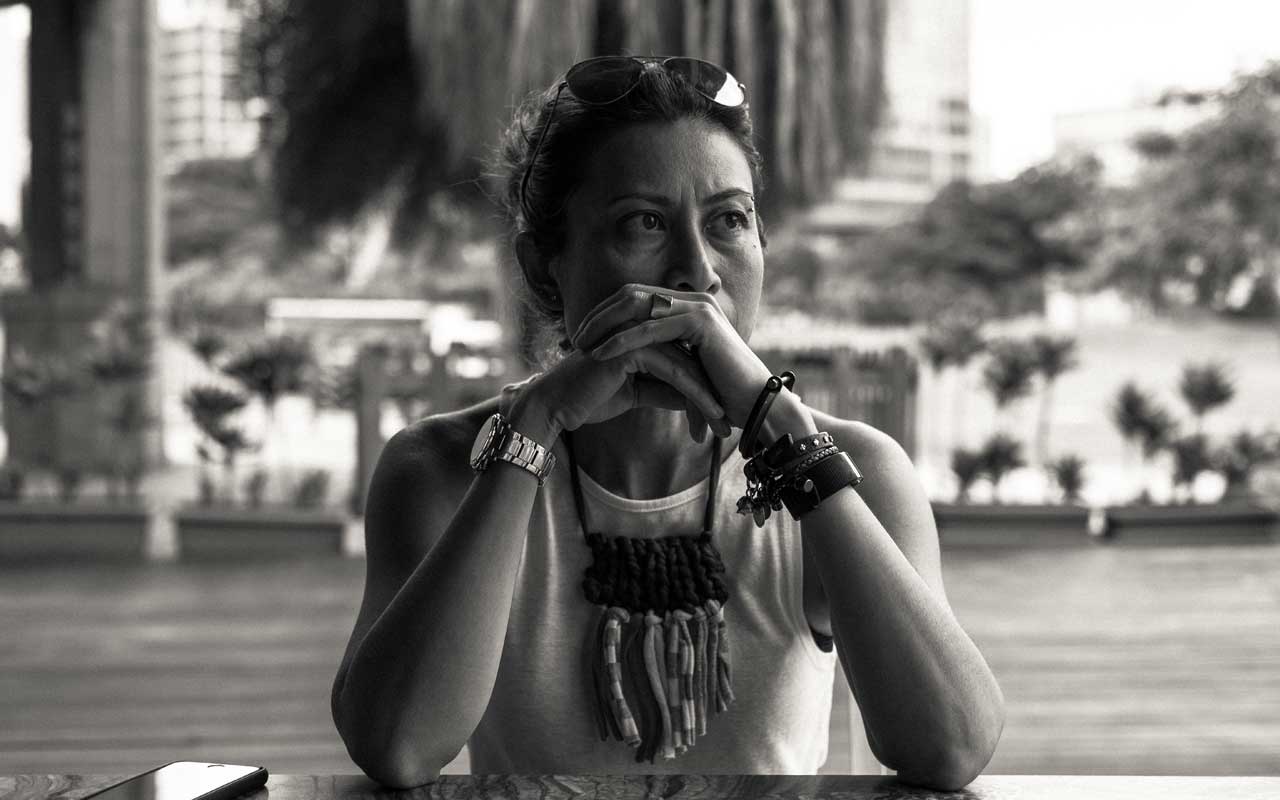



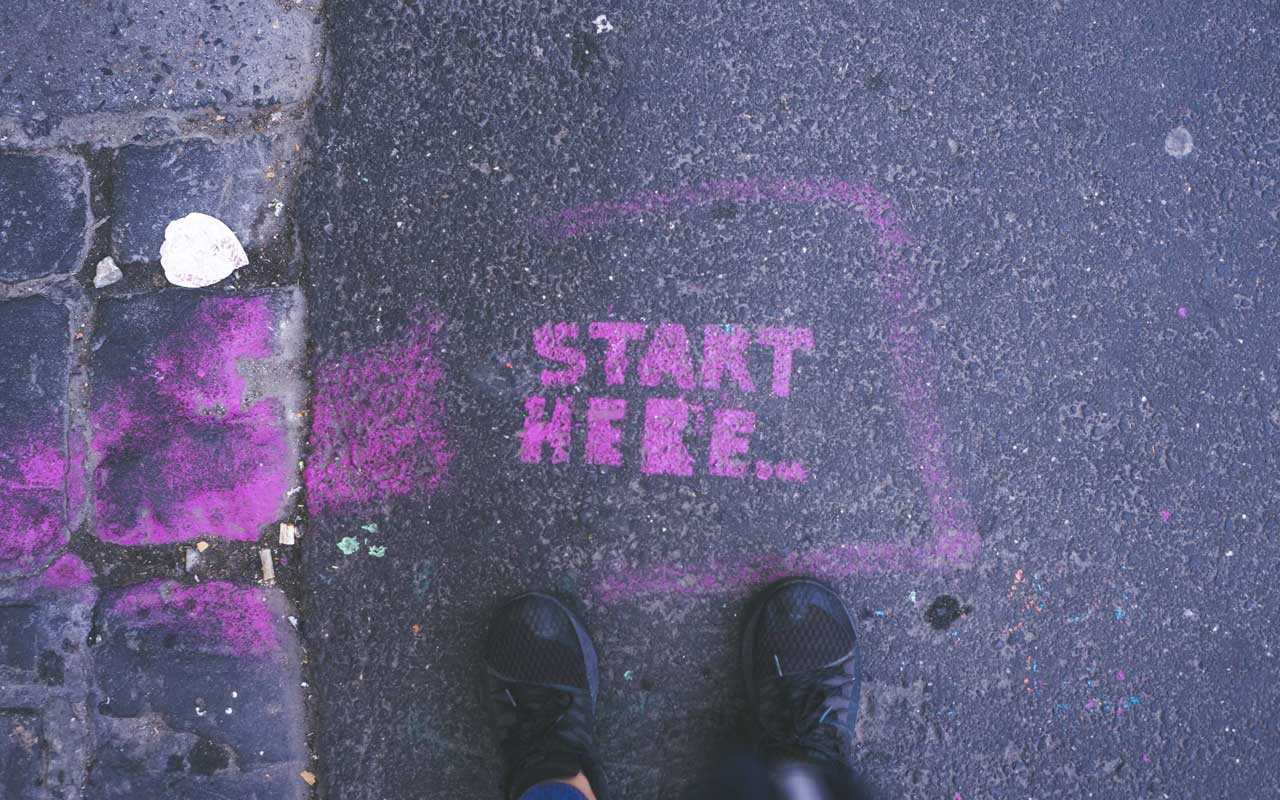
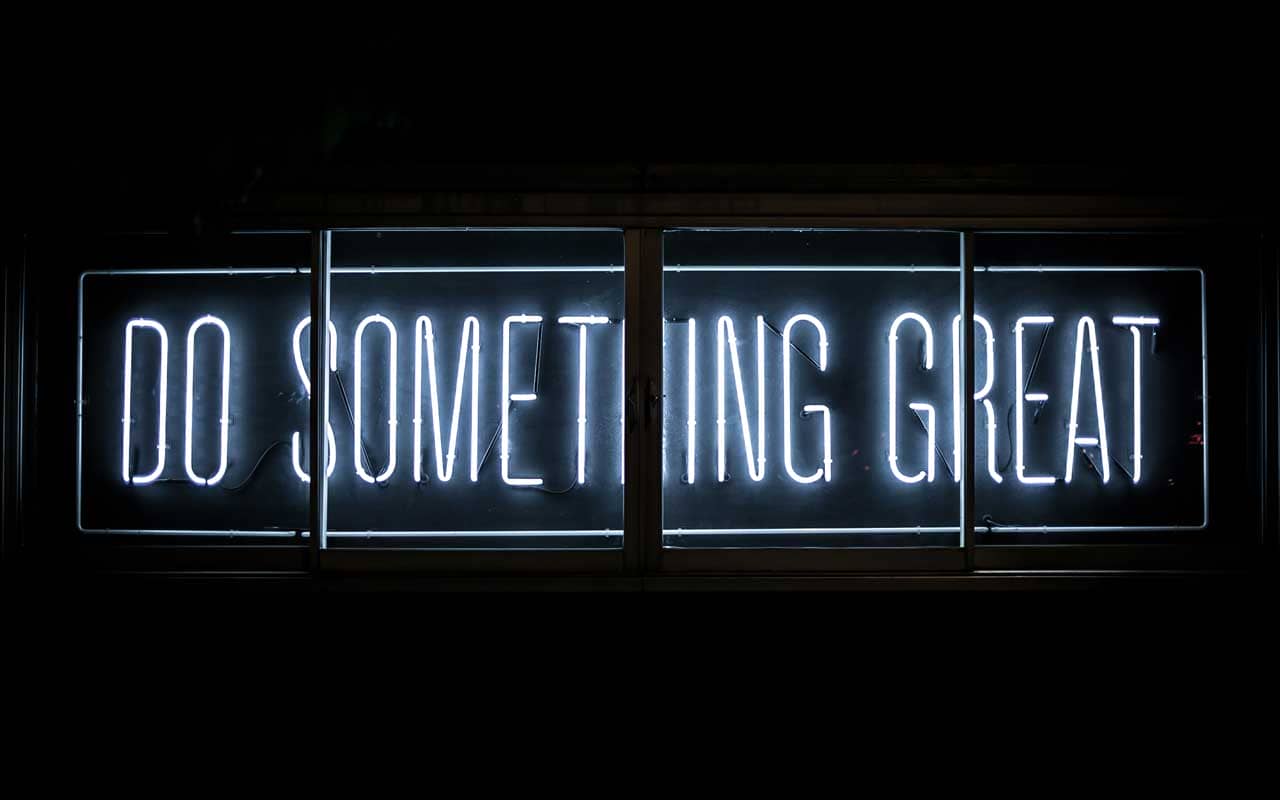
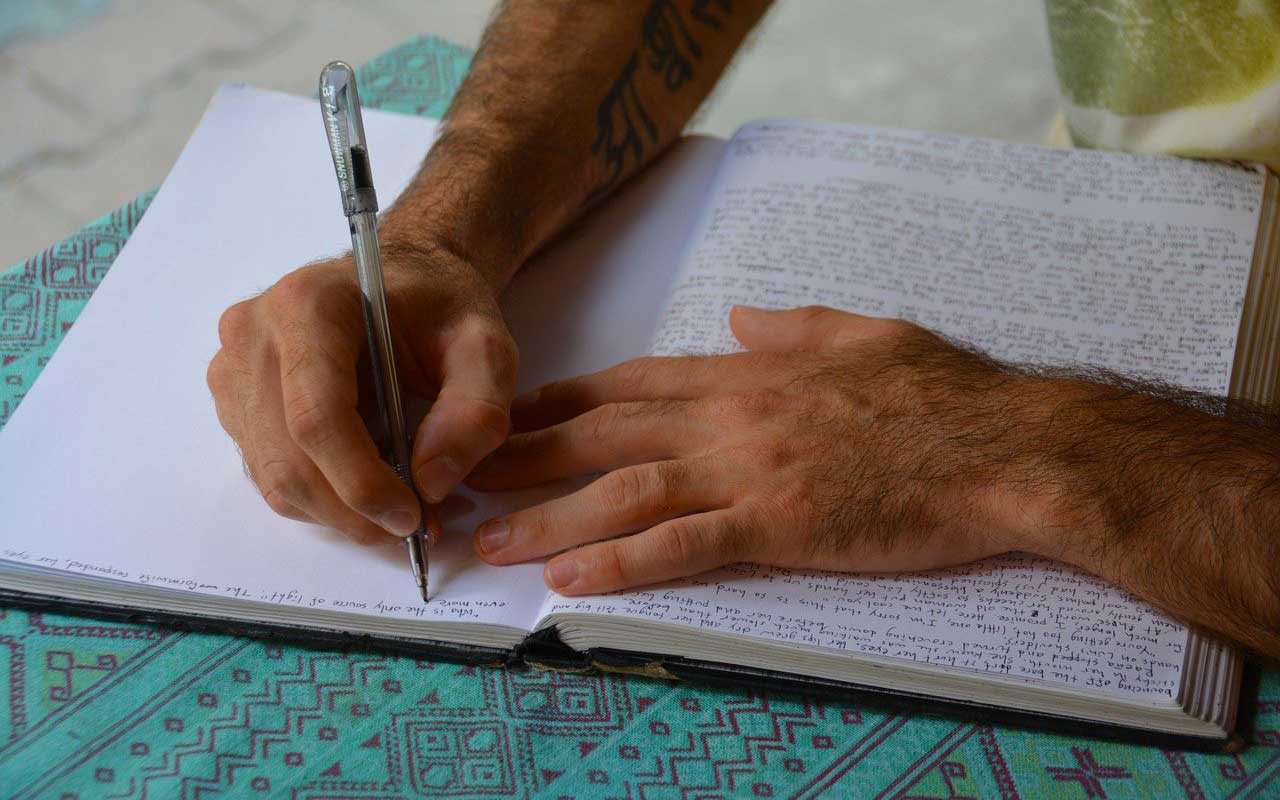





 You Are Not So Smart — David McRaney
You Are Not So Smart — David McRaney Happiness Beyond Thought & Evolving Beyond Thought — Gary Weber
Happiness Beyond Thought & Evolving Beyond Thought — Gary Weber The Power of Now — Eckhart Tolle
The Power of Now — Eckhart Tolle The Direct Path, A User Guide — Greg Goode
The Direct Path, A User Guide — Greg Goode Mind Map Mastery — Tony Buzan
Mind Map Mastery — Tony Buzan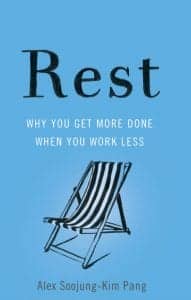 Rest, Why You Get More Done When You Work Less — Alex Soojun-Kim Pang
Rest, Why You Get More Done When You Work Less — Alex Soojun-Kim Pang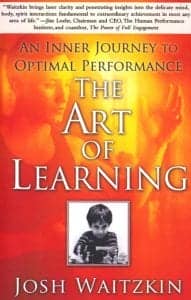 The Art of Learning — Josh Waitzkin
The Art of Learning — Josh Waitzkin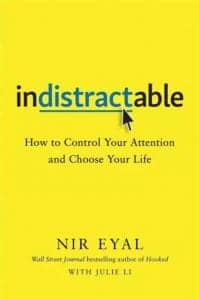 Indistractable — Nir Eyal
Indistractable — Nir Eyal A Question of Memory — David Berglas & Guy Lyon Playfair
A Question of Memory — David Berglas & Guy Lyon Playfair




22 Responses
I love your podcasts
Thanks so much for letting me know, Karen. Much appreciated.
Anything you’d like to have covered on a future installment?
Not just encouragement, not platitudinal.
This is Step-by-Step and very useful.
A real training document, for when you finally decide to take yourself seriously.
Thanks Anthony!
Thanks for giving it a read and for the kind words. I do hope that people will find good things for their journey of training themselves to take things one step at a time.
Hello Anthony,
Thank you VERY MUCH for a top quality article with excellent additional reviews and resources.Absolutely priceless !!!!!!!!
With these resources at my disposal, 2020 MUST BE the year I not only get back on track but also take GIANT / MASSIVE steps forward.
Thank you again.
Glad you found this helpful, Alex. Look forward to hearing about the steps you take to make IT happen. Please keep the myself and the MMM community posted!
I loved this, thanks for posting it.
Thanks so much for stopping by and letting me know, James. Much appreciated!
Wow! Such a great motivational post! Thanks for sharing this.
It was a pleasure to create for you!
Thank you very much for all your work and inspiration Anthony, the more I delve into MMM, the better it gets.
You truly are, inspirational, thank you again …
Thank you so much for checking this one out and commenting, Roger. I really appreciate it and look forward to bringing you more things to discover.
How deep into the history of the blog and podcast have you gone thus far? Any particular things you are looking for in the realms of memory and mental performance?
Thank you for sharing these and much more!!
My pleasure. I hope you find the test useful and can apply it many times across the span of life. 🙂
I am feeling fortunate and unfortunate at the same time. Fortunate that I found you. Thank you a million times. I love your podcasts and reading on your blog. I feel unfortunate thinking why didn’t I find you earlier.
Thanks for your kind words, Sangeet.
The past is indeed an interesting thing to contextualize. And then we have such wonder when we set ourselves free to explore the present moment. That is a powerful means of securing a better future.
What kinds of information would you like to remember better?
Great set of content, I absolutely love the book recommendations. I haven’t really thought to test my mental strength, and the set of steps you provide are great. Really Appreciate it.
So glad you found this useful. Thanks for letting myself and Team Magnetic know! 🙂
In this world, where we keep affecting ourselves with all the pain, it is important to take care of ourselves and keep shining. Every word meant a lot. Thank you for sharing.
Thanks so much, Benny. I totally agree and appreciate you stopping by to bolster this point. Shining is the key.
Thank you Doctor, I hope I can build my mental strength so I can improve my memory and also my concentration plus to be more critical in thinking.
Thanks, Rafidah. I’m certain you can.
Take action. Get results.
It’s a powerful formula.